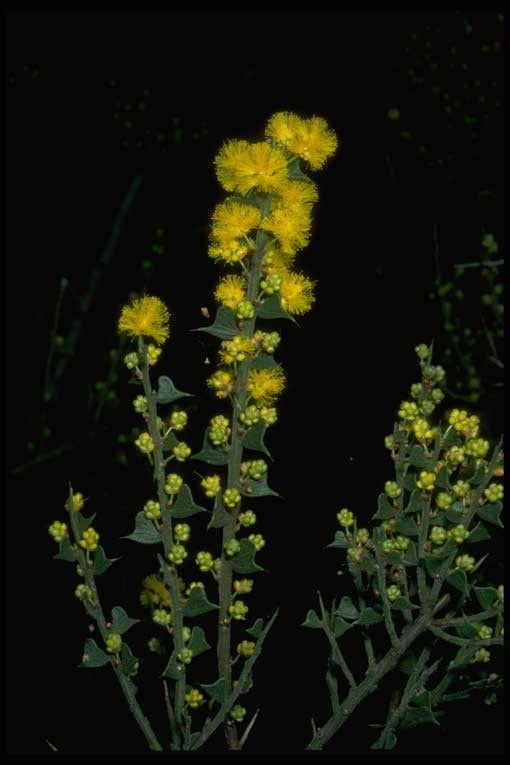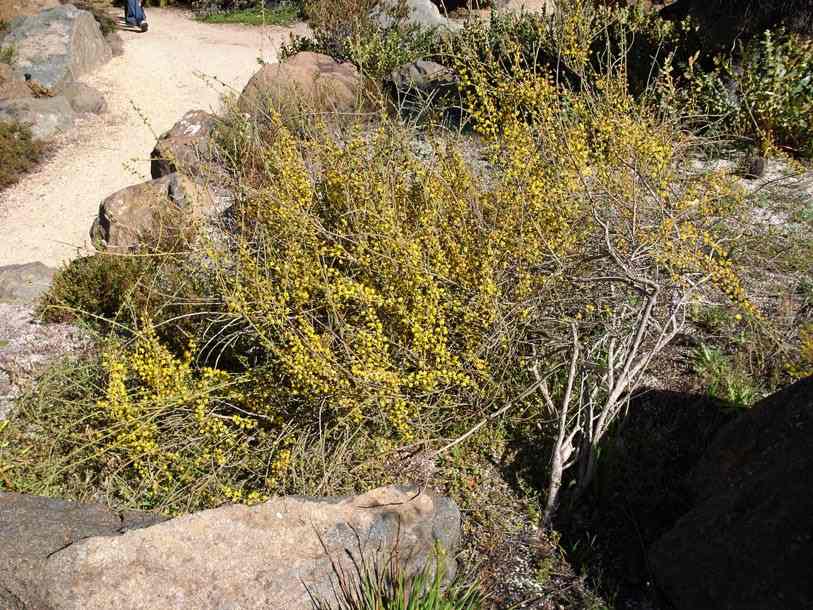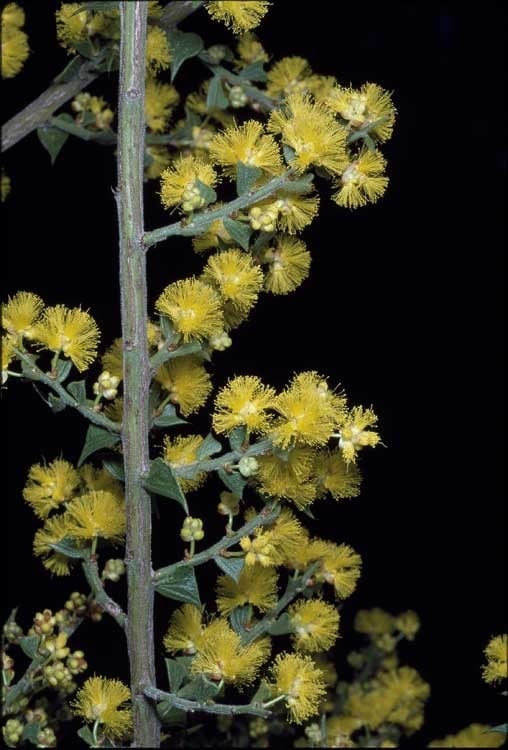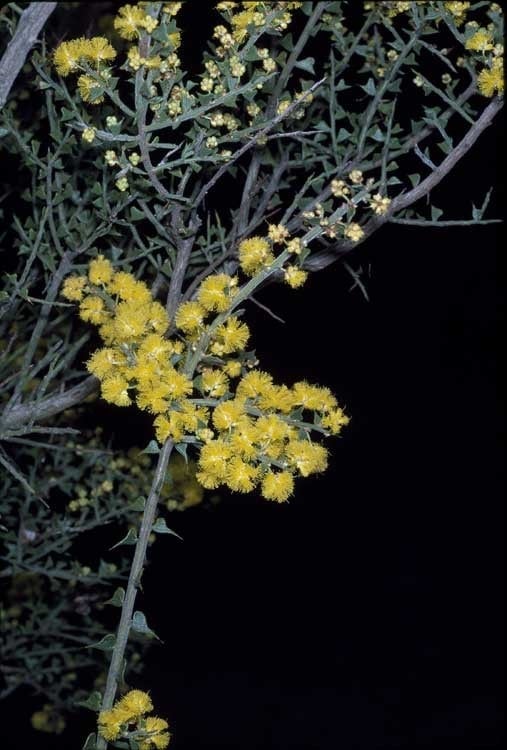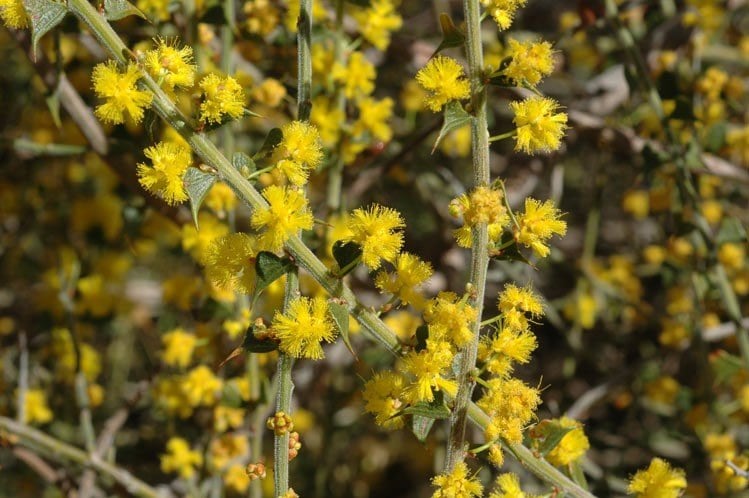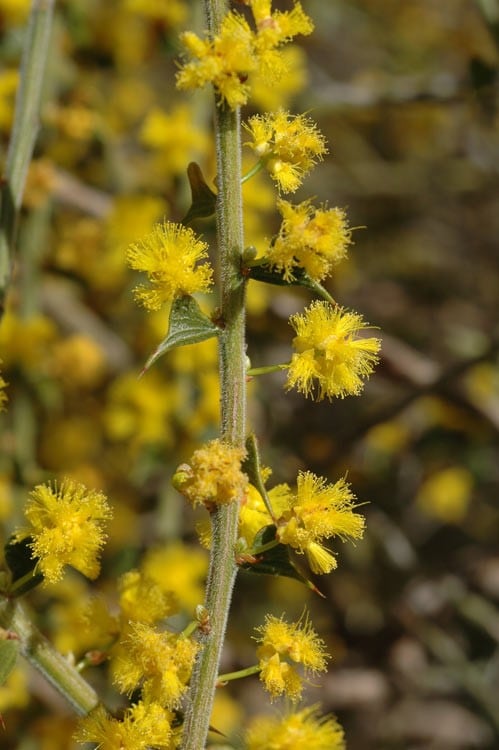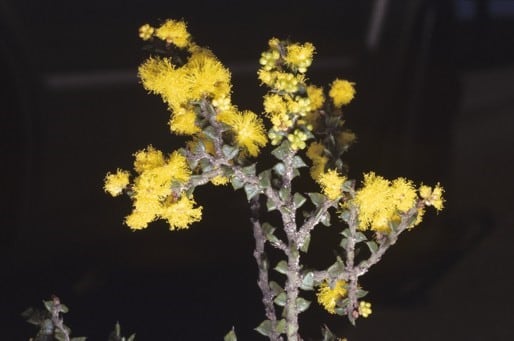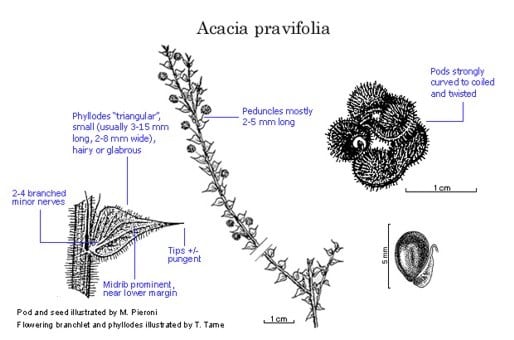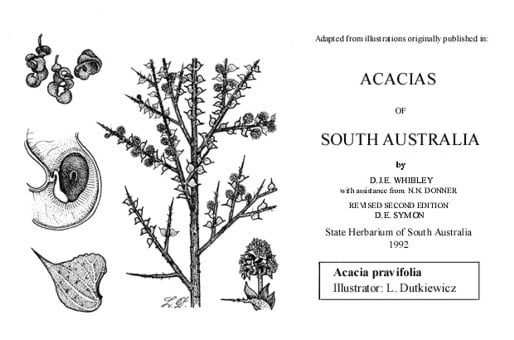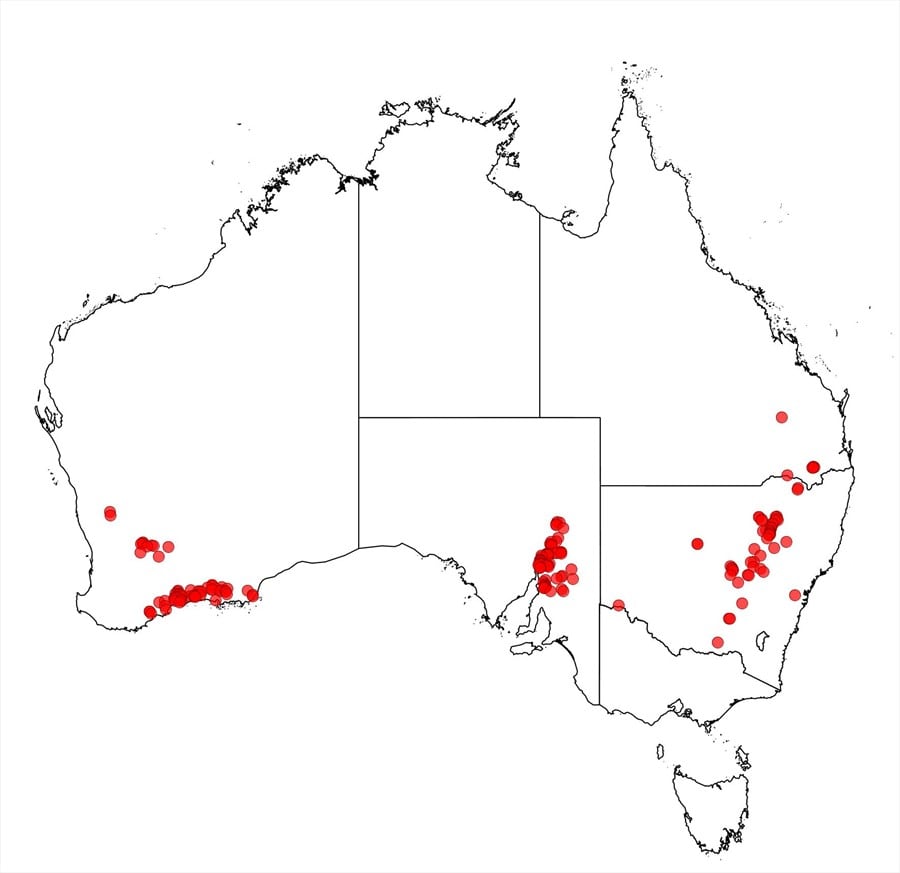Acacia pravifolia F.Muell.
WATTLE
Acacias of Australia
Common Name
Coiled-pod Wattle
Family
Fabaceae
Distribution
Distribution discontinuous. Occurs in the Flinders Ra. and Lofty Ra., S.A.; from Angepena S to near Burra, between Cobar, Narrabri and Temora, N.S.W.; in south-eastern Qld in the Tara–Warwick area, with a variant occurring between Jericho and Blackall (see note below); and in W.A. from Israelite Bay W to Boxwood Hill and N to near Wubin.
Description
Intricate shrub 0.5–2 m high. Branchlets rigid, sometimes coarsely pungent, hairy. Phyllodes sessile, inequilateral, with markedly rounded adaxial margin, shape variable but frequently obtriangular to obdeltate, broadest above or below middle, usually 3–15 mm long, 2–8 mm wide, l:w = 1–2, ±pungent by a short slender sometimes recurved mucro, glabrous or hairy, with midrib prominent and near abaxial margin, with 2–4 branched minor nerves running into adaxial margin; gland 0.5–2.5 mm above base. Inflorescences 1-headed rudimentary racemes with axes c. 0.5 mm long; peduncles usually 2–5 mm long, glabrous, sometimes subglabrous; basal bracts persistent; heads globular, normally 7–15-flowered, golden; bracteoles subsessile, concave, ±obtuse, brown. Flowers 5-merous; sepals 1/2–3/4-united. Pods strongly curved to rather tightly coiled and irregularly twisted, usually 5 mm wide, glabrous or hirsutellous to shortly pilose. Seeds longitudinal, oblong to elliptic, usually 3–4.5 mm long; aril l/2–2/3 length of seed.
Habitat
Grows in woodland or shrubland, often in shallow rocky soil.
Specimens
W.A.: Fitzgerald R. Natl Park, B.R.Maslin 3887 (CANB, K, MEL, PERTH). S.A.: road to Bundaleer in Northern Lofty Region, R.Bates 798 (AD, HO); Laura to Hugh’s Gap road, c. 6 km W of Gladstone, B.Copley 3070 (AD, PERTH). Qld: Karara, G.Ward 332 (K). N.S.W.: 32°15'S, 148°37'E [near Dubbo], J.L.Boorman (NSW108261).
Notes
Sometimes superficially similar to A. hubbardiana and Variant 2 of A. maitlandii.
Until recently this name had been wrongly regarded as a synonym of the northern Australian species A. sublanata, fide A.B.Court, Muelleria 2: 159 (1972) and L.Pedley, Austrobaileya 1: 224 (1978).
Acacia pravifolia, together with five close relatives, A. amblygona, A. flabellifolia, A. lanceolata, A. scalena and A. sphenophylla, constitute the ‘A. pravifolia group’. These species have small, ±pungent, inequilateral phyllodes with a few minor nerves parallel or subparallel to the midrib (which is commonly situated near the abaxial margin) and running into the adaxial margin. Their inflorescences are extremely reduced, 1-headed racemes (raceme axis to c. 0.5 mm long and subtended by two small bracts) with the peduncles subtended by usually 2, partially fused, brown bracts which are longer than the raceme bracts, the bracteoles are broad, concave, ±sessile and ±obtuse. This group has a very discontinuous distribution throughout Australia. Inflorescence morphology of A. retrorsa suggests affinities to the ‘A. pravifolia group’.
Specimens with unusually long peduncles (8–10 mm) occur between Jericho and Blackall, Qld, and in the Pilliga State Forest, N.S.W. (e.g. R.S.Dick, BRI248917; J.H.Dalby 86/118, NSW, PERTH). Specimens from Flagstone Ck, Qld, cited and illustrated as A. pravifolia by B.A.Lebler, Wildfl. SE Queensland 2: 65 (1981), are A. amblygona (e.g. M.Olsen & B.A.Lebler, BRI253477).
Despite their unusual vegetative characters, A. continua and A. spinescens appear to be related to this group as well. These two species, together with A. amblygona, constituted subsect. Parviscutellae of Vassal’s sect. Pulchelloidea, fide J.Vassal, Bull. Soc. Hist. Nat. Toulouse 108: 105-247 (1972). Similarly, A. woodmaniorum is probably very close to the ‘A. pravifolia group’, despite its highly unusual phyllodes.
A somewhat variable species, especially with respect to indumentum and phyllode shape. The branchlets are hirsutellous to puberulous or shortly pilose and, when present, the phyllode indumentum is similar but sparser.
The W.A. specimens require further investigation. They have consistently short peduncles (1–3 mm long) and many have exceptionally small phyllodes (2–4 mm long) which often resemble those of A. ericksoniae; the few pods seen are glabrous, 3 mm wide with seeds 2–2.5 mm long. Specimens from inland areas have spinescent branchlets.
FOA Reference
Data derived from Flora of Australia Volumes 11A (2001), 11B (2001) and 12 (1998), products of ABRS, ©Commonwealth of Australia
Author
Minor edits by B.R.Maslin & J.Rogers
B.R.Maslin
This identification key and fact sheets are available as a mobile application:
URL: https://apps.lucidcentral.org/wattle/
© Copyright 2018. All rights reserved.
